Photograms turned into paintings: the recent production of Sarah Ledda at the Gamba Castle
That of the Aostan artist Sarah Ledda (Aosta, 1970) and the Castello Gamba - Museum of Modern and Contemporary Art in Châtillon is a bond that began back in 2000, with the first donation in favor of the regional art collections. In fact, the work B movie has been exhibited in the museum since its opening in 2012. In 2014, however, came the second donation with the work To the Third Day, an occasion for an encounter between the artist and the museum. However, the first real opportunity to delve into the artist’s language, albeit as part of a group show, occurred during the pandemic period, between October 2020 and May 2021, with the exhibition Assault on the Castle. 14 Aosta Valley Artists Conquer the Gamba, curated by Davide Dall’Ombra.
The current solo exhibition visitable until October 1, 2023, at the Gamba Castle, entitled Sarah Ledda. Almost true, curated by Ivan Quaroni and produced by Arteam Cultural Association, is a further rapprochement between the painter and the museum venue, which was created with the aim of focusing on her recent production. On display are about thirty paintings, some of them from private collections and therefore visible at Castello Gamba for the first time, through which the aim is to tell the story of the formation of female identity through recognizable characters that film diffusion has helped make into universal images. In fact, the artist draws her iconographic repertoire from classic Hollywood cinema and television. The image taken from the old film, whether that of the face of a Hollywood diva such as Marilyn Monroe, Audrey Hepburn, Liz Taylor or Judy Garland, or that of the young Inger Nilsson as Pippi Longstocking, no longer belongs only to the artist who performs it, but becomes a universal code, triggering a reaction in anyone who recognizes it. From classic films and old television series, Sarah Ledda isolates single frames to transform them into painting, with the intention of investigating the themes of memory and emotions in the dialectical relationship between fiction and reality.
“Sarah Ledda’s painting, as is evident, does not concern at all the mere representation of reality, but neither does it concern the celebration of a media imaginary easily shared through the triggering of a mutual complicity between artist and observer, based on the recognition of Hollywood movie icons, which would have entered by right into the heritage of universal images, something one might doubt in the multifaceted global multicultural scenario,” writes curator Ivan Quaroni in the exhibition catalog. “Ledda’s is rather a research focused on the act of vision, understood as a capacity for conscious reworking of images and, at the same time, as a process of reorganization of the world, of the set of inner and outer experiences that the artist has matured and then eventually transferred into his artistic practice. It is not, in her case, a matter of reproducing exactly the image that is before her eyes, be it the frame of a Hollywood film or an old American television series, but of translating with the metamorphic power of the pictorial language an inner vision that the frame can embody or ’personify,’ as a result of a kind of transference or symbolic exchange between the artist’s personal memory and the virtual and media image.”
“Sarah Ledda,” Quaroni emphasizes, “does not simply reproduce the frame faithfully, but introjects the filmic image into painting to make it coincide with memories, feelings, and states of mind that sometimes precede the act of viewing and sometimes coincide with the moment of selection of the still image.”
The frame is sometimes altered, hiding or enhancing details such as objects and backgrounds, or increasing color intensity, blurring the contours of figures or dematerializing the background in abstract backgrounds. The artist also makes use of extra-pictorial devices, such as cinematic framing, the optical devices of blurring and fading, and even subtitles imprinted on the bottom edge of frames.
“Each subject transformed into a painting,” Ledda explains, “is a mythobiographic element that helps me define my identity.”
Finally, the exhibition features for the first time the only extra-pictorial work by Sarah
Ledda, titled A/R (Frames): a series of photographs, edited into a long video sequence, depicting glimpses of landscape captured over a ten-year period along the railway line between Aosta and Turin, there and back. Images that, despite the changes they have undergone over time, seem to have remained unchanged.
For more info on the Almost True exhibition visit www.castellogamba.vda.it
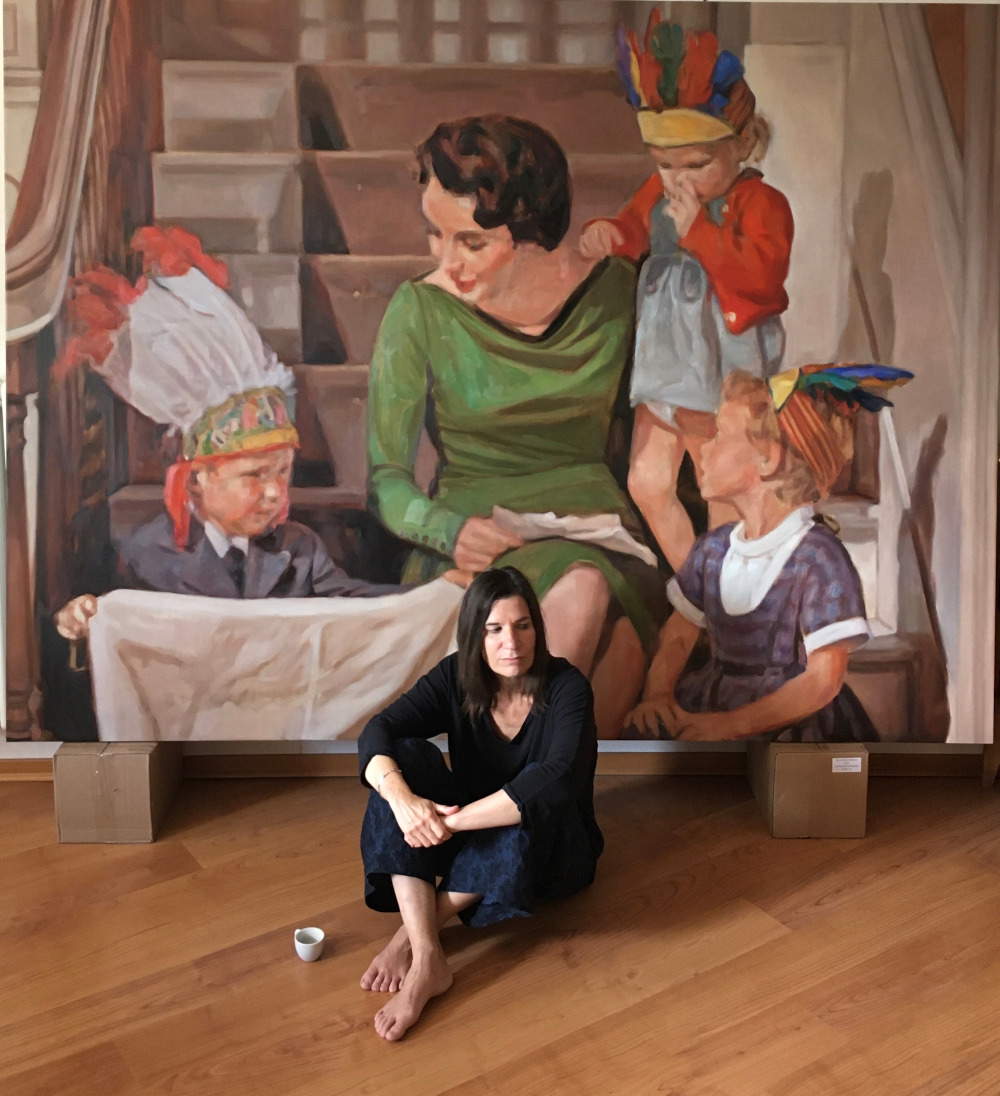
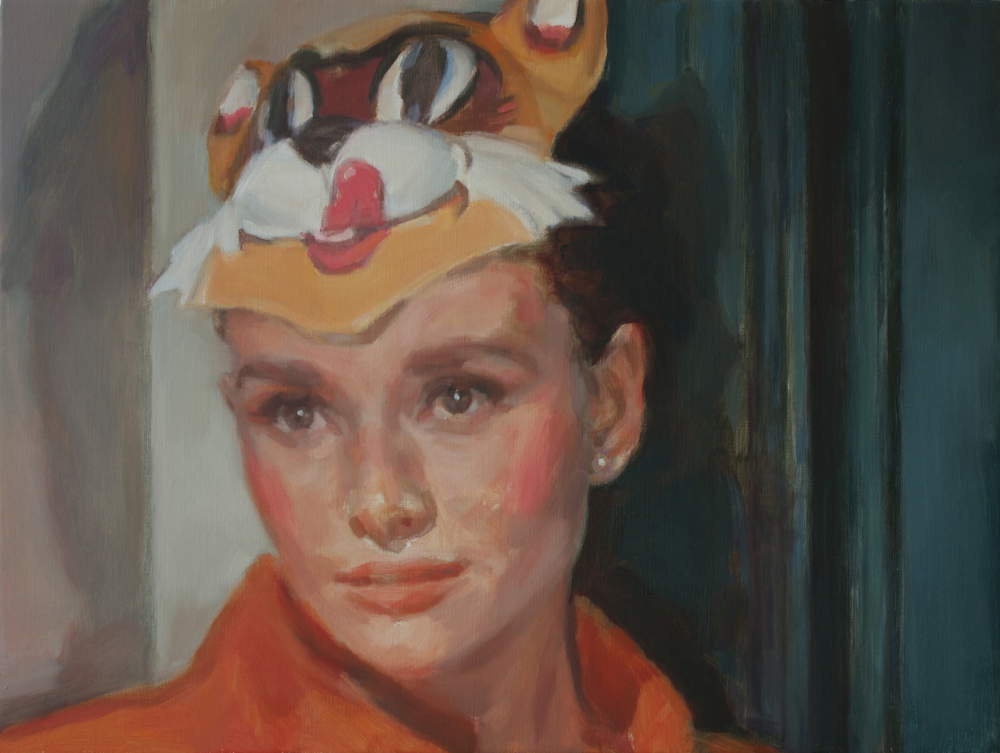
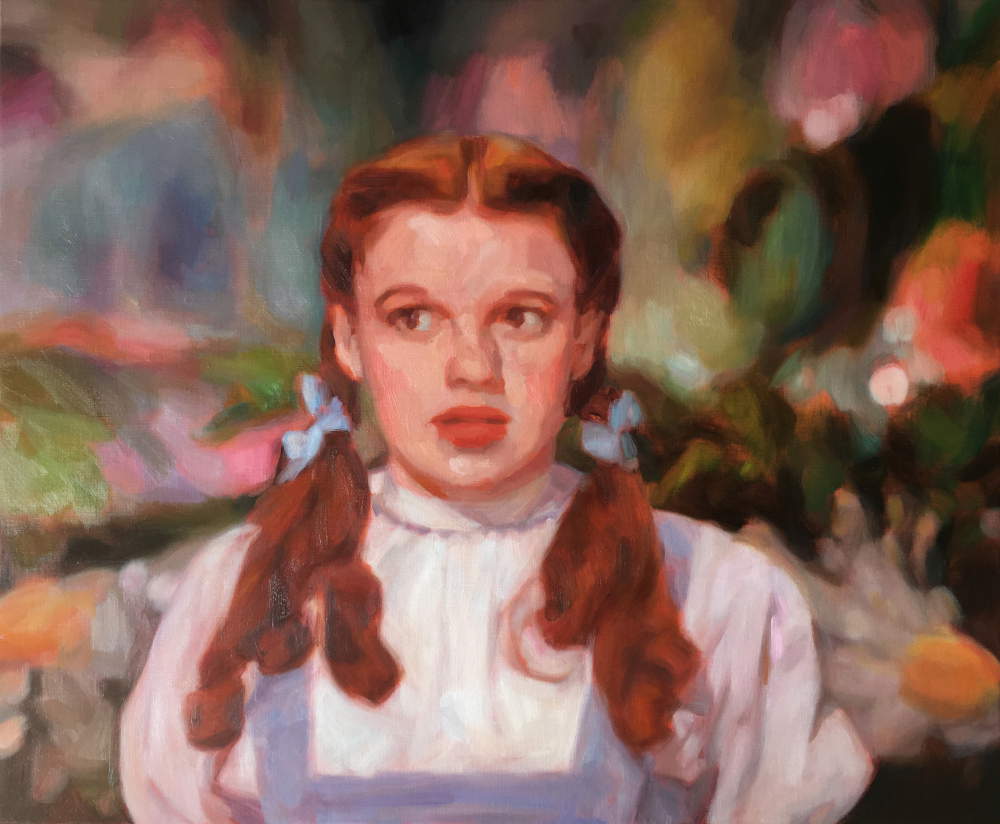
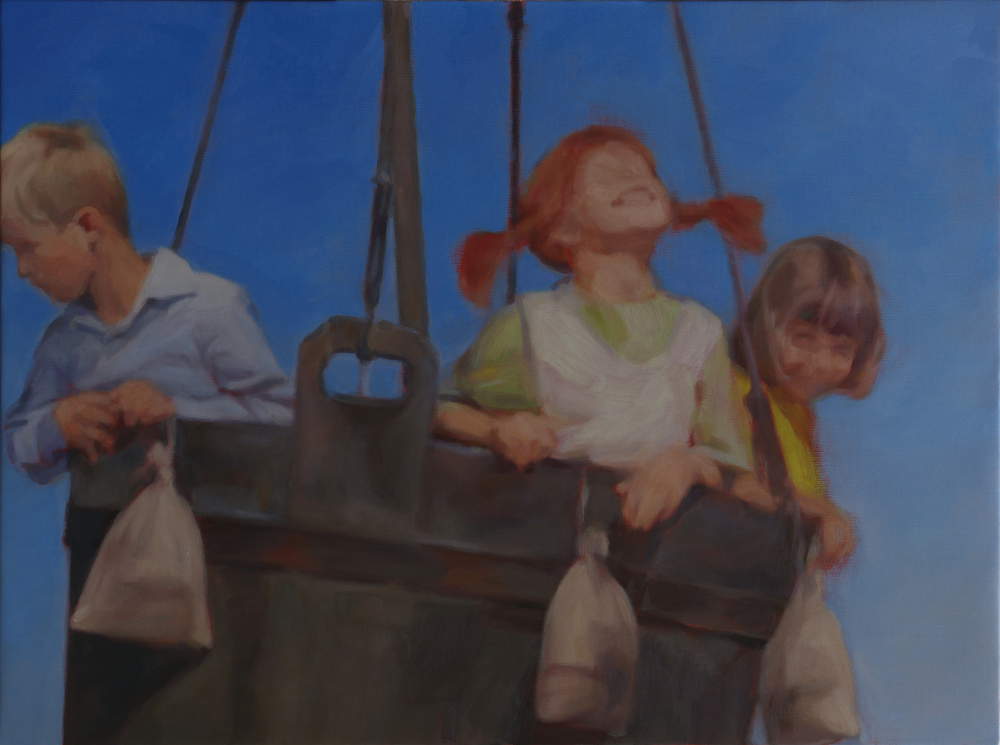 Sarah Ledda
Sarah Ledda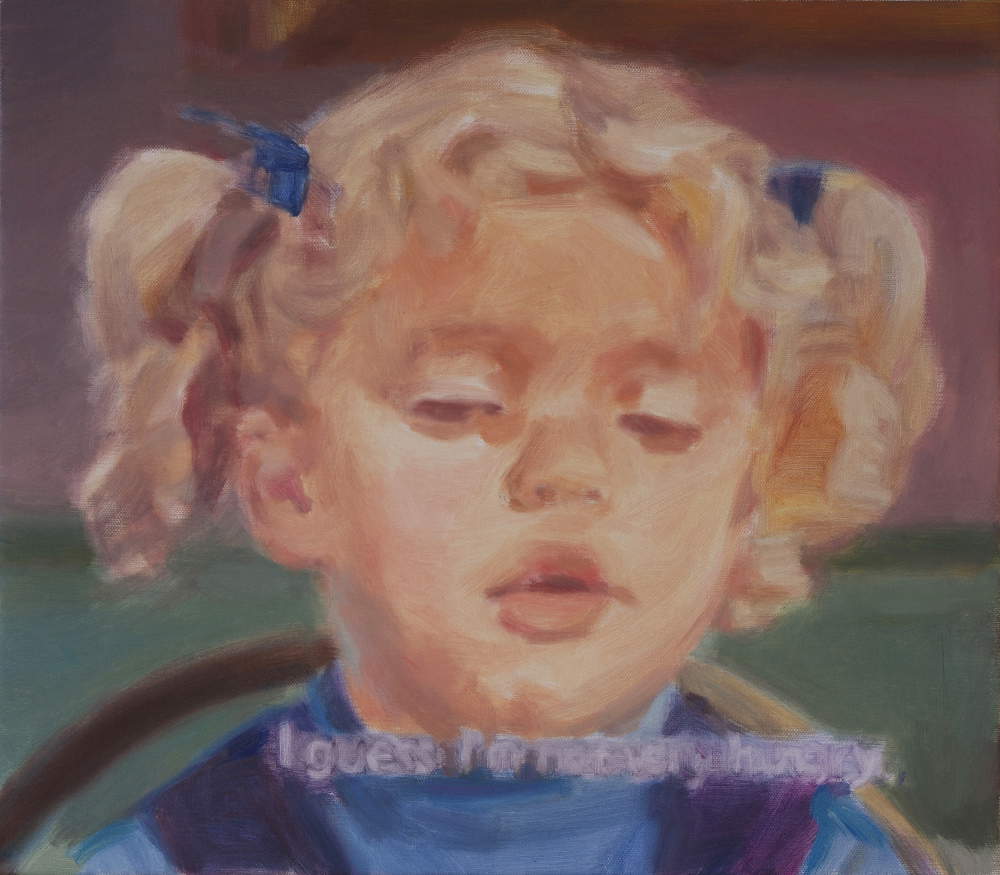
 |
| Photograms turned into paintings: the recent production of Sarah Ledda at the Gamba Castle |
Warning: the translation into English of the original Italian article was created using automatic tools. We undertake to review all articles, but we do not guarantee the total absence of inaccuracies in the translation due to the program. You can find the original by clicking on the ITA button. If you find any mistake,please contact us.




























